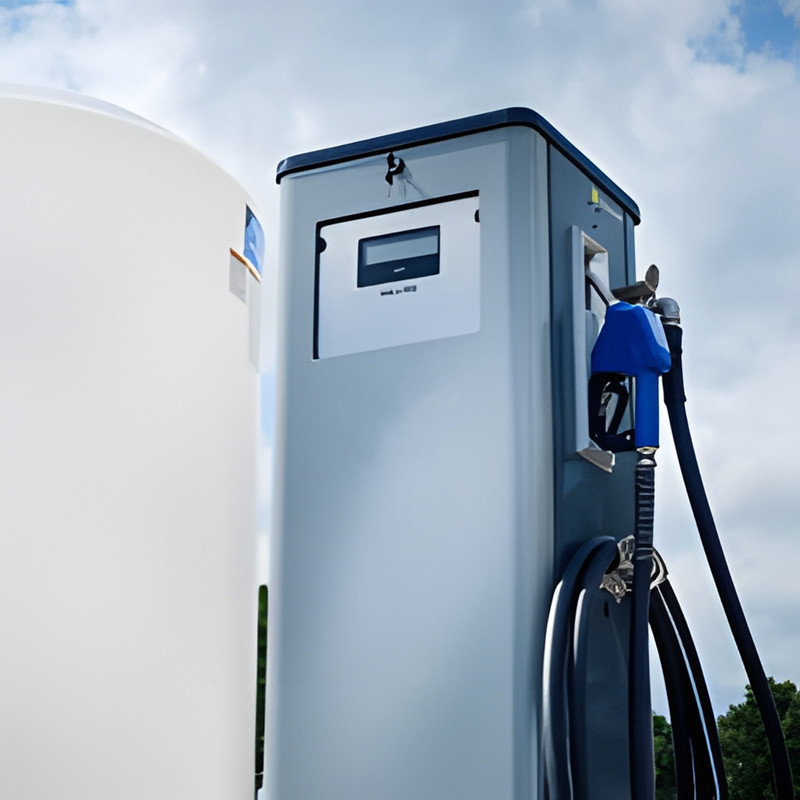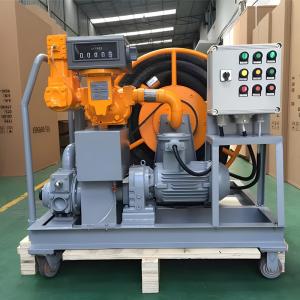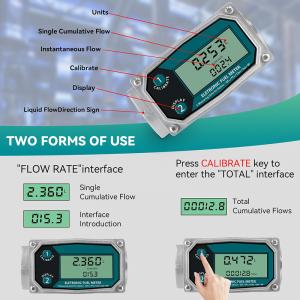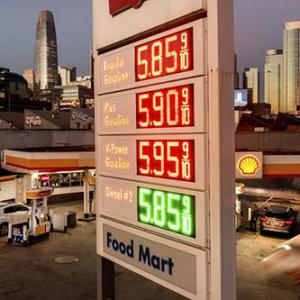DEF Guide: The 5 Key Standards Every Gas Station Equipment Supplier Must Know
Your Definitive DEF Guide: The 5 Key Standards Every Gas Station Equipment Supplier Must Know
As a gas station operator or equipment supplier, you’ve likely seen the growing demand for Diesel Exhaust Fluid (DEF). What you might not realize is that not all DEF is created equal. The quality of the DEF you sell can have a direct and lasting impact on your customers' vehicles, their satisfaction, and your station’s reputation. Using a low-quality DEF can lead to costly vehicle repairs, while a high-quality product builds trust and ensures repeat business.
This article is your comprehensive guide to selecting and supplying DEF fluid. We will go beyond the basics to outline the five critical standards you must consider when choosing DEF for your forecourt. We’ll also cover how to find the right def fluid suppliers, why a properly matched def tank with pump is essential, and how to protect your investment for long-term profitability.
1. Understanding DEF: The Chemistry and Consequences of Quality
Before we dive into the standards, it’s crucial to understand what DEF is and why its purity is non-negotiable.
The Chemical Composition of DEF
DEF is a non-hazardous, clear liquid composed of 32.5% high-purity urea and 67.5% deionized water. This precise ratio is critical. When injected into a diesel vehicle’s Selective Catalytic Reduction (SCR) system, the DEF reacts with harmful nitrogen oxides (NOx) in the exhaust. This chemical reaction breaks down the NOx into two harmless components: nitrogen gas and water vapor.
The Dangers of Low-Quality DEF
The SCR system is a highly sensitive and expensive part of any modern diesel vehicle. It is designed to work with DEF that meets a strict set of purity standards. When low-quality DEF is used, it can introduce impurities that wreak havoc on the system.
-
Contamination is the Culprit: Impurities like calcium, magnesium, heavy metals, and other minerals can poison the SCR catalyst. A poisoned catalyst loses its effectiveness over time, leading to a massive increase in NOx emissions and a check-engine light.
-
Physical Damage: The fine mist of DEF is sprayed through a nozzle into the exhaust stream. When impurities are present, they can build up inside the nozzle, causing it to clog or fail. The resulting repair can be both time-consuming and expensive, costing your customer hundreds or even thousands of dollars.
For these reasons, the quality of the DEF you sell is not just a matter of performance—it’s a matter of trust and legal compliance.

2. The 5 Non-Negotiable Standards for Sourcing DEF
When evaluating potential def fluid suppliers, these five standards should be at the top of your checklist. They are the benchmark for quality, reliability, and long-term value.
Standard 1: ISO 22241 International Certification
This is the most important standard. ISO 22241 is the globally recognized quality standard for DEF. It covers everything from production to handling, transport, and storage. Any DEF you purchase should be certified to this standard.
-
What it Means: ISO 22241 certification guarantees that the DEF is of the highest quality and purity. It ensures the urea concentration is correct and the impurity levels are below the set limits, which is vital for preventing damage to a vehicle’s SCR system.
-
How to Verify: Always ask for the ISO 22241 certificate. A reputable supplier will be proud to show you this documentation. You can also look for the ISO 22241 stamp on the packaging or check the supplier's website for official statements.
Standard 2: Purity and Impurity Control
While ISO 22241 covers purity, it’s worth highlighting the key elements you should be aware of.
-
Urea Concentration: The concentration must be within a very narrow window: 32.5% ±0.7%. Outside of this range, the DEF will not work efficiently and could cause system faults.
-
Controlling Impurities: The standard sets strict limits on various ions. For example, calcium, magnesium, sodium, and potassium must be present at extremely low levels. These are the very contaminants that can poison the catalyst and lead to expensive repairs. A good supplier will be able to provide a Certificate of Analysis (COA) for their product, showing that they adhere to these limits.
Standard 3: Production and Storage Conditions
The quality of DEF can be compromised even after it’s produced if it's not handled correctly.
-
Production Process: The purest DEF is made using high-tech equipment and a deionization process to create ultra-pure water. Ask your potential def fluid suppliers about their production methods and quality control procedures.
-
Temperature Sensitivity: DEF is sensitive to temperature. It freezes at -11°C (12°F) and can degrade at temperatures above 30°C (86°F). Proper storage in temperature-controlled environments is essential to maintain the fluid’s integrity. Ensure your supplier’s logistics chain respects these temperature constraints.
Standard 4: Supplier Reliability and Service
A great product is only half the story. The reliability of your def fluid suppliers is just as important.
-
Reputation and Stability: Choose a supplier with a strong brand reputation and a stable supply chain. This ensures that you will have a consistent, high-quality product and that they will be able to meet your demand, especially during peak seasons.
-
Technical Support: Look for a supplier that offers excellent customer service and technical support. They should be able to answer your questions, provide training on proper handling, and assist in the event of an emergency.
Standard 5: Price and Value for Money
While adblue def price is always a factor, it should not be the sole basis for your decision.
-
Understanding Price Differences: The price of DEF can vary based on the brand, its purity, the supplier’s logistics, and the level of service provided. A lower price might indicate compromises in quality or a lack of service.
-
Value Assessment: Instead of focusing on the lowest adblue def price, evaluate the total value. Consider the quality, the reliability of the supplier, and the support they offer. Investing in a slightly more expensive but higher-quality DEF can prevent future headaches and save your customers from expensive repairs, ultimately enhancing your reputation and brand loyalty.
3. Seamless Integration with DEF Dispensing Equipment
Once you have a high-quality DEF fluid, the next step is to ensure you have the right equipment to dispense it.
Choosing the Right Dispensing Equipment
An all-in-one solution, such as a pre-packaged def tank with pump, is an ideal solution for many gas stations. These systems come complete with a tank, pump, meter, and nozzle, making them easy to install and operate. They are specifically designed for the safe and clean transfer of DEF, minimizing the risk of contamination.
The Importance of Material Choice
DEF is corrosive to certain materials, including aluminum, copper, and some plastics. To prevent contamination and damage to both the fluid and the equipment, all components that come into contact with DEF must be made of corrosion-resistant materials, such as stainless steel or high-density polyethylene (HDPE) plastics. This ensures the fluid remains pure and the equipment lasts for years.
Routine Maintenance
Even with the best equipment, regular maintenance is crucial. Emphasize to your staff the importance of keeping the def tank with pump clean and free from any contaminants. Regular checks of the pump, filter, and nozzle will ensure smooth and reliable operation.
4. Frequently Asked Questions (FAQ)
Q: Can I make my own DEF to save on adblue def price? A: This is highly discouraged. Creating DEF requires high-purity urea and deionized water, which are difficult to source and measure accurately. Homemade DEF will almost certainly contain impurities that can destroy an SCR system, leading to a much higher cost in the long run.
Q: What is the best storage temperature for DEF? A: The optimal storage temperature is between -11°C and 30°C (12°F to 86°F). Temperatures outside this range can cause the fluid to freeze or degrade, affecting its quality.
Q: What are the risks of using cheap DEF? A: As mentioned above, a lower price often indicates a lack of purity or an uncertified product. The risk is that the impurities will damage the SCR system, causing expensive repairs for your customers and damaging your station’s reputation.
Q: How do I choose the best def fluid suppliers? A: Start by verifying their ISO 22241 certification. Then, compare their adblue def price in relation to their reputation and the level of service and support they offer. Always prioritize quality and reliability over the lowest price.
Conclusion: A Smart Choice for Long-Term Profitability
Choosing the right DEF is a strategic decision that impacts your business in the long run. By understanding the science behind the fluid and adhering to these five key standards, you can protect your customers' vehicles, build a reputation for quality, and ensure the reliability of your operations.
Take the time to vet your current def fluid suppliers. Re-evaluate the quality of your def tank with pump equipment. By investing in quality and consistency, you’re not just selling a product—you're providing peace of mind and securing your place as a trusted partner in the fueling industry.





